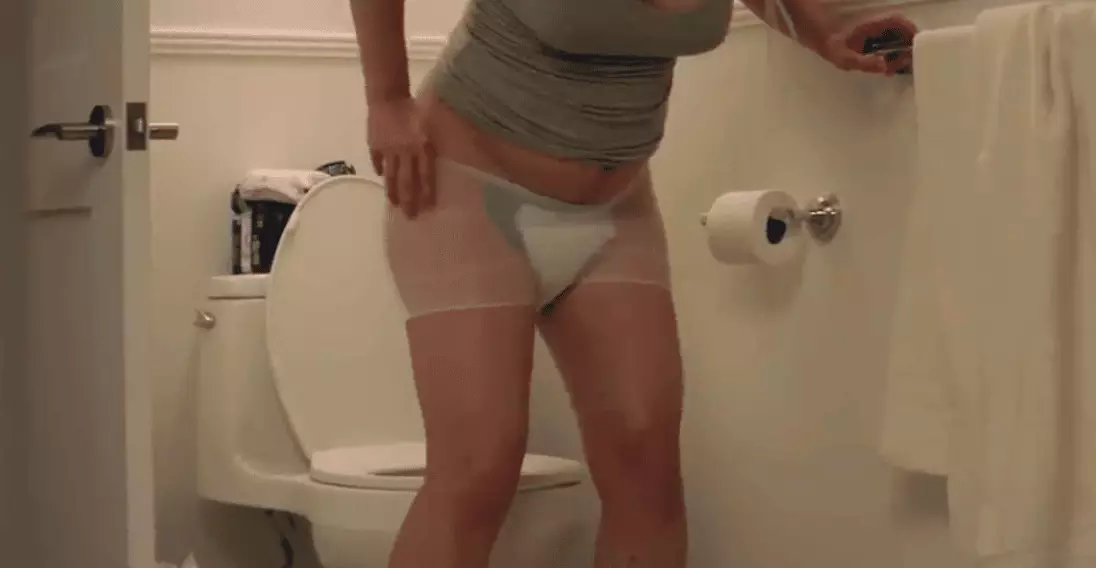In the realm of television, certain events elevate the significance of their accompanying advertisements to a near-equal standing with the programming itself. The Super Bowl, with its over-the-top commercials, and the Oscars, showcasing cinematic excellence, serve as prime examples. As the 92nd Academy Awards prepare to take center stage, a noteworthy controversy surrounding the rejection of a commercial by Frida Mom—a brand specializing in postpartum recovery products—has sparked an essential discourse on motherhood, representation, and societal perceptions.
Frida Mom’s commercial offers a candid glimpse into the life of a new mother navigating the challenging postpartum journey. The visuals depict a weary mom, dressed in a tank top and mesh underwear, tenderly responding to the cries of her baby while grappling with the remnants of childbirth. Her discomfort is palpable as she engages with a peri bottle, a lifeline for many new mothers during a time when their bodies are in recovery. Strikingly, ABC deemed the content “too graphic” for airing during the highly anticipated Oscars broadcast, a decision that reveals broader societal apprehensions about honest portrayals of motherhood.
While many advertisements over the years have depicted birth in sanitized and idealized forms, Frida Mom’s representation stands in stark contrast. It goes beyond depicting the event of childbirth; it exposes the bodily aftermath that women endure—a reality that is often glossed over or ignored. The contrast with past ads, such as Verizon’s touching narrative of connectivity during childbirth, raises questions about what version of motherhood is deemed acceptable in prime time.
Chelsea Hirschhorn, the CEO of Frida and a mother of three, articulated the rationale behind this unapologetic representation in her statement. She underscored that their mission was to prepare women for the physical realities of motherhood, fostering confidence through knowledge. The rejection of the ad, she noted, feels like a regression in the ongoing conversation about postpartum recovery. Despite the setback, Hirschhorn’s resolve to spread awareness remains unshaken, as she emphasizes that “knowledge is confidence.”
This situation unveils the often taboo nature of discussing postpartum realities. The discomfort surrounding the visibility of postpartum struggles highlights a cultural tendency to shy away from authentic discussions about the challenges mothers face after childbirth. The expectation for mothers to resume their roles seamlessly—as if they have never undergone a significant physical transition—reinforces harmful narratives that can perpetuate feelings of inadequacy and isolation among new parents.
The need for visible support and understanding is especially pronounced in a society that frequently overlooks the complexities of postpartum recovery. The statistics demonstrate the physical toll: blood loss, healing from tears or incisions, and emotional upheaval all contribute to a multifaceted recovery process. To dismiss these realities under the guise of being “too graphic” only serves to uphold the stigma around maternal health issues.
As Diana Spalding, a midwife and digital education editor, points out, our cultural expectations surrounding recovery and healing can be misguided. Just as we wouldn’t expect someone recovering from surgery to immediately resume their daily responsibilities, the same grace and understanding should extend to new mothers. This societal double standard is not only damaging to mothers but also detrimental to the families and communities that rely on their wellness during a critical transition period.
There is an emerging call to action among advocates for motherhood and maternal health, urging a shift in how society addresses postpartum experiences. Frida Mom’s audacious choice to showcase an unfiltered portrayal of the postpartum journey resonates profoundly in a time when many mothers are often silenced or ignored. This rejection by the Oscars serves as a crucial reminder of the work still required to normalize discussions around maternal health.
The conversation has transcended the rejection of an advertisement; it speaks to a larger societal need for empathy, understanding, and representation in media. As we move forward, it is vital for organizations, networks, and communities to create spaces where the conversation around motherhood is transparent, inclusive, and empowering.
In closing, it is imperative that we challenge the boundaries of what is deemed acceptable content. We must champion the narratives that honor mothers throughout their journeys and embrace their truths in all forms—because the realities of childbirth and postpartum recovery are not merely stories to be shared, but vital aspects of the human experience that deserve recognition and respect.

